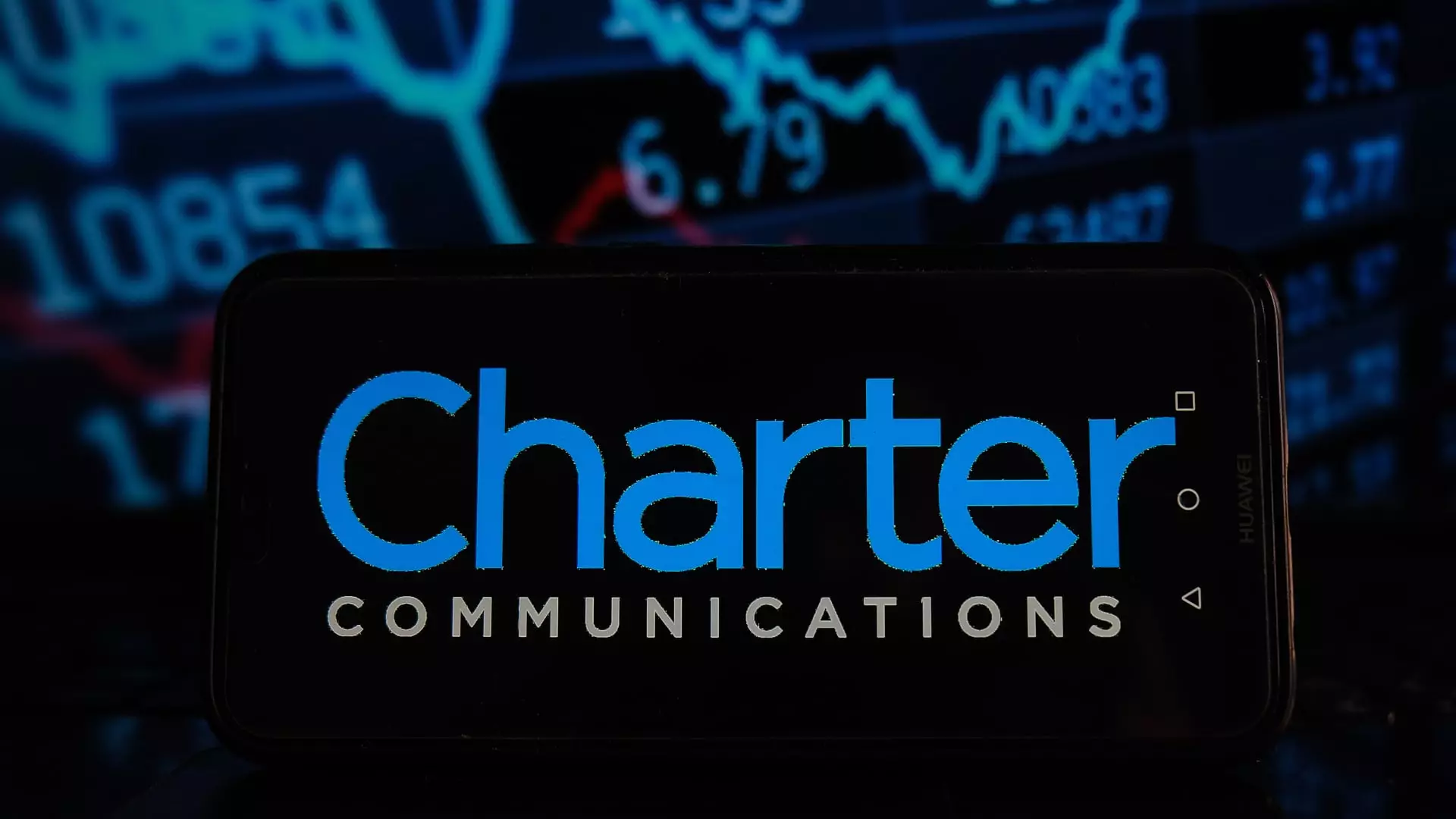In a strategic move that echoes across the vast landscape of American telecommunications, Charter Communications and Cox Communications have announced their monumental merger. This union, valued at a staggering $34.5 billion, is not merely a rearrangement of shareholder wealth; it signifies an alarming trend toward the consolidation of power within a few corporate behemoths that might stifle competition and innovation within the broadband sector. With Charter’s towering stature as the second-largest cable company in the U.S., the potential effects of this merger will ripple worldwide, potentially redefining how thousands of consumers engage with digital media and communication.
At its core, this merger presents a clear dichotomy: it positions itself as a necessary leap toward maximizing efficiencies and harnessing synergies, while also raising eyebrows about what such consolidation truly means for consumers. Should American families entrust their connectivity to a corporate entity that not only dominates the market but also faces serious competition from emerging wireless technology?
The State of Competition
Despite the allure of a seamless broadband experience, the deal comes at a time when the traditional cable paradigm is crumbling. Recent years have seen a steady decline in cable subscriptions as households pivot toward more flexible and cost-efficient options like streaming services and 5G internet. Charter’s reported loss of 180,000 cable customers last quarter reflects an industry grappling with profound changes, suggesting that this merger might not necessarily be the grand panacea its proponents claim it to be.
Moreover, it’s worth scrutinizing the long-term implications of this consolidation. While supporters herald the arrival of a combined entity that can weather competition better, the potential of having an enormous dual entity such as Charter-Cox dominating the market raises alarms regarding fair pricing and service standards. Will a monopoly be the long-term outcome of such corporate marriages?
Consumer Trust in Question
Consumer trust hangs in a precarious balance, especially when considering that this merger significantly alters the competitive landscape of the broadband industry. With Charter already controlling a substantial portion of the market, the integration of Cox’s customer base must lead us to question whether this consolidation genuinely prioritizes consumer wellbeing or simply fills shareholders’ pockets. The ramifications for competition also extend beyond broadband, impacting mobile communications as Charter has aggressively incorporated mobile services into its business model in an effort to remain relevant.
As charter lays out plans for expansion and resource integration post-merger, it seems plausible that promotional pricing and bundled offers will be extended briefly. However, once the thrill of the merger settles, will consumers find themselves trapped in a labyrinth of confusing billing practices and diminishing service quality as these corporate entities prioritize profit margins over customer satisfaction?
A Mascot for the Future?
One of the more perplexing elements of this merger is the decision to transition to the Cox Communications brand, despite Charter’s prominent position. How often do we see brands trade familiarity for the rush to claim a legacy that others have built? As a consumer, it’s both baffling and concerning. Branding doesn’t just impact business strategy; it shapes consumer experience. Will the return of a recognizable brand name ultimately cater to an emotional attachment for consumers, or will it merely serve as a veneer, masking the realities of a more monopolistic landscape?
It’s indeed a crossroads. While the boardroom deals scream efficiency and cost-cutting, the underlying narrative reveals a tectonic shift that favors corporate size and synergy over consumer choice and vibrant competition. The newly formed company will inherit more than just assets; it will carry a legacy—a responsibility toward the millions of consumers relying on their services.
The Path Forward
As the waves of this merger crash upon the shores of consumer consciousness, stakeholders—whether they be business leaders, employees, regulators, or everyday citizens—must remain vigilant about what lies ahead. The merging of Charter and Cox could yield the promised efficiency, but we must ask at what cost? Will the future involve vibrant, competitive options for consumers, or is it merely a prelude to higher prices and mediocre service?
As we stand at this critical juncture, we must advocate for a telecommunications industry that thrives on competition, innovation, and consumer choice rather than one driven by the relentless pursuit of market dominance. It may not be just another merger; it may be an opportunity for us to redefine our expectations of what broadband should truly offer in the 21st century.

